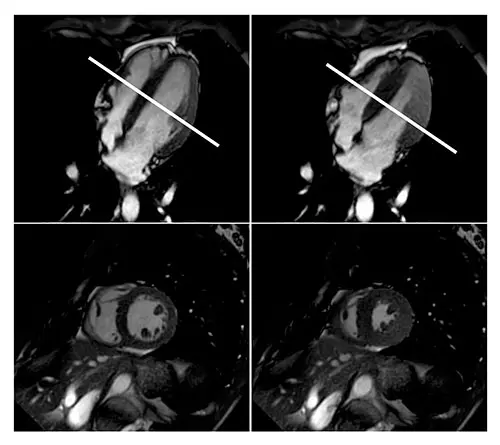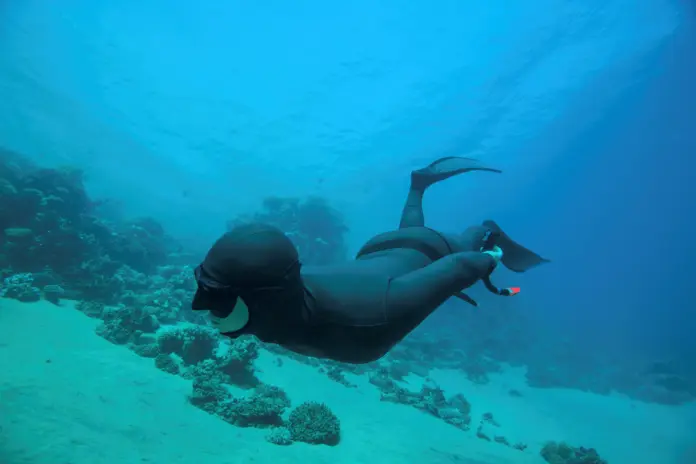A new study presented today at the annual meeting of the Radiological Society of North America (RSNA) has shown that Freedivers undergo significant cardiovascular changes whilst holding their breath. These changes “could be harmful for improperly trained divers or people with cardiac or other medical conditions” researchers warn.
Dr Jonas Dörner and researchers at the University of Bonn used an MRI to study the simulated effects of Freediving on the cardiovascular systems of 17 German and Austrian freedivers. The subjects went under an MRI before, during and after breath holds averaging 5mins and a maximum breath hold of 8min 3secs.
“We wanted to look at the changes that occur in the heart during apnea in real time,” explained study author Dörner “These athletes train to be able to hold their breath for long periods, when they get into the water, they are able to hold their breath even longer due to the diving reflex.”

The MRI exams allowed the researchers to observe the cardiovascular changes involved in real time which shows, during apnea, the amount of blood flowing to the brain through the carotid arteries increased and then leveled off.
“At the beginning of the apnea period, the heart pumped more strongly than when the heart was at rest,” Dr. Dörner said. “Over time, the heart dilated and began to struggle.”
By the end of the apnea period, the study said the divers’ heart function began to fail and divers showed changes similar to those in heart failure – although the study notes that the condition was temporary.
The trained Freedivers didn’t seem to be at significant risk, however the study leaders stated that untrained and recreational Freedivers could be at risk.
“As a recreational activity, free diving could be harmful for someone who has heart or other medical conditions and is not well trained for the activity,” said one of the study’s leaders, Lars Eichhorn, M.D., from the Department of Anesthesiology and Intensive Care Medicine at the University Hospital of Bonn.
It is important to note that all participants in this study were experienced freedivers – “elite” in the researchers terms – and no inexperienced or recreational Freedivers were tested. In addition any sport or physical activity – including Freediving – can stress the body and heart.
DeeperBlue.com has reached out for further comment to the study authors and medical professionals.
You can read the original Press Release on the RSNA website as well as the abstract of the study.

